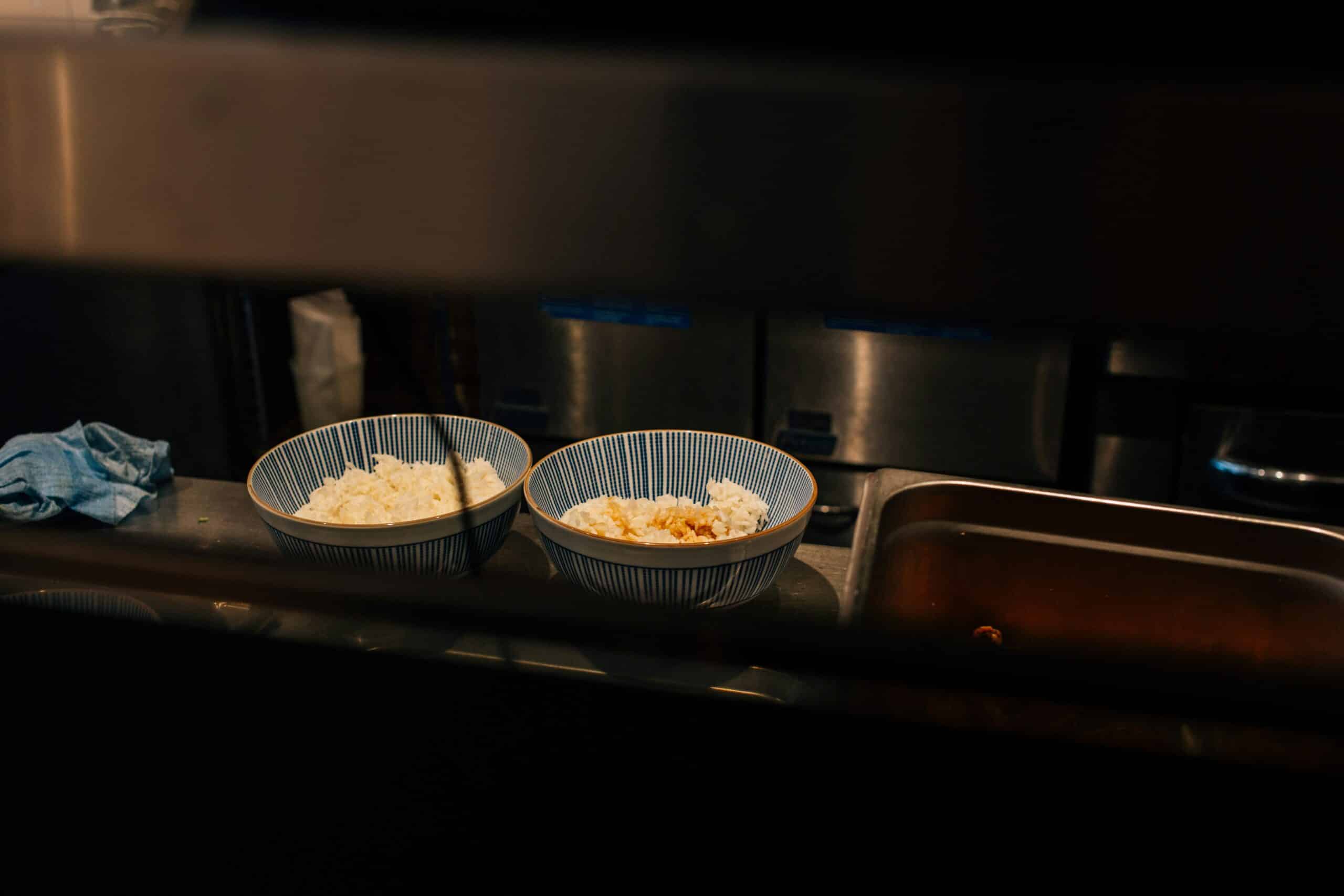In November 2017, a number of my friends cheered as Donald Trump won the U.S. presidential elections. These friends were tired of perceived liberal elitism, generally frustrated with majority views held in our social circles regarding US politics. They worried that educated Filipinos were “copying liberal values out of context.” Some even wanted to move to the States to “practice libertarianism.”
Fast forward to early 2020, and Trump continually dismissed claims that the 2019 novel coronavirus (COVID-19) was dangerous, citing that America was prepared, all while advisors and experts warned of an impending global pandemic.
As of this writing, the United States has the largest number of COVID-19 cases in the world.
***
Crises often reveal not just individual character, but that of collectives, as well.
And as we’ve been exposed to our government’s character, it’s been harder and harder to defend and deny blatant gaslighting, mismanagement of public resources and disrespect of our time.
Suffice to say, the most diehard supporters of errant leaders the world over have had their faith shaken.
***
As the news cycle and virus coverage plods on, one way people combat anxiety and despair amidst uncertainty is asking questions like “what are you looking forward to after the outbreak?”
Imagining a future as a form of coping is a tale as old as time yet a proactive one at that. It highlights the human ability to still shape our destiny, that we are not simply victims of the whims of both circumstance and those in power.
Some popular things to look forward to #AfterCOVID19 have been #ResumeProtest, #TuloyAngLaban and especially #Halalan2022 as more and more Filipinos see that votes don’t just determine who stays in power or loses it, but who lives or dies in a time of crisis.
Vox populi
The documentary “The Kingmaker,” which debuted locally a day before the Philippines recorded its first COVID-19 case in Jan. 30, portrayed how the current administration was influenced by the Marcos family as a bid to restore themselves to political power.
With their massive, ill-gotten wealth, they’ve managed to secure the machinery to establish a bulwark in specific Philippine provinces, with Bongbong Marcos landing second place in the vice presidential election of 2016. Troll armies, disinformation campaigns, and lately, attempts to rewrite textbook history were pivotal factors in the close-fight and ongoing bid for a recount between candidates Marcos and Leni Robredo.
Since COVID-19’s outbreak in the Philippines, Robredo’s office has utilized its allotted as well as donor funds to respond to requests for aid especially from medical frontliners. Local governments (LGUs) like Pasig, Valenzuela, Marikina and Cainta have also mobilized and shared notes to provide creative and compassionate solutions especially geared towards their most vulnerable citizens. Other city administrations have since deployed strategies inspired by the above.
Social media continues to be ablaze with calls for more accountability, fueled by both traditional and internet celebrities (including those initially holding contrary views), artists and opposition politicians—and the hundreds of thousands, perhaps millions, of average Filipinos behind them.
A clear picture of the president’s and cabinet’s response, following the granting of emergency powers (and not to mention billions of pesos from a reworked 2020 national budget) to his office, remains to be seen. As of press time, Pasig City Mayor Vico Sotto was summoned by state investigators on alleged violation of the Bayanihan Act. Netizens were quick to make hashtags such as #ProtectVico and #PeoplePower trend. Immediately after, the state investigation bureau also summoned Senator Koko Pimentel for violating quarantine protocols, despite the justice department calling for “compassion” for the senator.
[READ: The lowdown on the Bayanihan to Heal as One Act]
Social media continues to be ablaze with calls for more accountability, fueled by both traditional and internet celebrities (including those initially holding contrary views), artists and opposition politicians—and the hundreds of thousands, perhaps millions, of average Filipinos behind them.
Kim Chiu, a DDS, now actually said “yoko na!!!” tho no outright denouncing of the president pero the character development haaa! pic.twitter.com/vK6rbmpdhD
— PEDRO (@lanzegrabesuper) April 1, 2020
Good vibes only
Edgar* a UV express driver presently based in Pasig City recalls how vote buying works in his provincial hometown. Votes are not actually bought, but coerced. One candidate’s goons show up with money, threatening harm for not voting for their boss. Immediately after, the rival candidate’s thugs show up with the same “offer.”
After watching “The Kingmaker” “at a time when the [COVID-19] crisis hadn’t intensified,” Arvie Hernandez was pleased that the production wasn’t one-sided, getting viewpoints from major personalities across the spectrum. This made its presentation of the cold, hard facts of the Marcos regime and family more impactful, thus adding validity to certain opinions and rendering others invalid.
Looking back, he hopes more Filipinos will hold their elected officials to higher standards of governance, “hindi lang puro palabok.”
Hernandez works as a cultural worker under the Parañaque local government. If the recent local elections are any indicator, he has hopes for the future. Sure, many traditional trapos cemented power once again, but a crop of leaders embodying the phrase public servant has also emerged, as demonstrated by specific LGU’s responses to the COVID-19 outbreak.
“Pag oras ng botohan, lahat napupuntahan nila. Pero ngayong kailangang ng relief goods, kami dito sa kasuluk-sulukan ay hindi nila mapuntahan.”
‘Pag masa talaga ang nagsalita, nakakapaso, nananampal ng katotohanan.
(video grabbed from GMA yt) pic.twitter.com/TBdKvHARRL
— MENCH (@menchongdeee) March 30, 2020
He expounds, “isang bagay ito upang mamulat ang botante sa bagong mukha ng lidership… Ito’y unang hakbang para piliin ng taong bayan ang karapat-dapat ng lider mapa-lokal o nasyonal man.”
Meanwhile, Kris* a freelance creative, recalls the day former president and dictator Ferdinand Marcos was buried in the Libingan ng mga Bayani—the military presence, “red alert” signs and subsequent partying in the cemetery. She remembers her tears, too.
Some years later, she found herself tapped for a national government event which eventually drew flak for accusations of corruption as well as ethical issues. Like many sunk projects, she and others involved were forced to resign—and remain silent. But since watching “The Kingmaker,” she’s been able to vocalize her sentiments.
“It’s all about perception [management],” she’s passionate as she shares, “that is something [traditional politicians] have mastered. But given the current political landscape, I’m really hoping people are more involved and would start asking the right questions.”
Looking back, he hopes more Filipinos will hold their elected officials to higher standards of governance, “hindi lang puro palabok.”
After everything
Aside from the ballot, here are a few more things we can look forward to after the enhanced community quarantine:
- Resuming requests at the government Freedom of Information site
- Requesting your local Commission on Audit office (every LGU has one, and requests for national audits are also possible) for a report of how your taxes have been spent. Requests can be anonymous.
- Checking in on government offices via their social media accounts
- Volunteering for verified NGOs and audited government initiatives aiming to ameliorate social and environmental factors in the long-term
- If push comes to shove, protesting in the streets.
“But given the current political landscape, I’m really hoping people are more involved and would start asking the right questions.”
If employers are keen to track their employees through 24/7 internet connectivity and work-from-home setups, and if we (for the most part) willingly submit to this, why not subject our leaders to the same demands? Technically, we, the tax paying citizens of the Republic of the Philippines are the bosses of our elected officials, so all the more do we have the right to demand that weekly report.
REMEMBER WHAT YOUR GOVERNMENT OFFICIALS ARE DOING FOR YOU. Remember who actually did his/her job during this crisis. Never EVER forget.
— Camille Co (@itscamilleco) April 1, 2020
The Chinese government has also been trying to rewrite its role in the pandemic, painting itself as a hero, donating medical supplies to first- and third-world countries alike. All this, after they’ve silenced the doctors who first blew the whistle on the virus all while resorting to disinformation and conspiracy theories to deflect blame from their citizens to the US government.
The Philippines was late to impose a travel ban on China, citing fears of diplomatic reprisals.
What is a political move for one in power translates to a life-or-death scenario for average citizens.
More stars are speaking up re how bad the government is handling the COVID-19 crisis (A THREAD)
— Juan Sergio 🇵🇭 (@jownuss) April 1, 2020
Ultimately however, it’s not an us-versus-them, red-versus-yellow, Philippines-or-China-or-US, or pro-versus-anti question. The virus, like a natural disaster, cares not about political leanings, accumulated wealth or national allegiance.
It is, however, about our willingness to not let intimidation, jadedness, or fear prevent us from voting for leaders who truly care for our welfare, all while calling out the excesses of those in power. If our inaction can make the wrong kings, our action can also undo them. And more importantly, viruses and storms won’t have to hit us—the most vulnerable—as hard if and when they do hit.
Kris echoes Hernandez in her present hopefulness, musing that “we still have the power. We still have the hand on what change we want our country to have.”
So to those saying that speaking out, responding to intimidation and voicing out concerns is just us being negative? One viral (no pun intended) post put it, “it’s better to be negative than positive these days.”
Names changed to protect privacy. Voter registration for the 2022 national elections opened last Jan. 10 and runs until September 21, 2021—the anniversary of Ferdinand Marcos’ declaration of Martial Law.
Get more stories like this by subscribing to our weekly newsletter here.
Read more:
A comprehensive guide on voter registration
Vote-buying will never be an acceptable practice, Mr. President











































